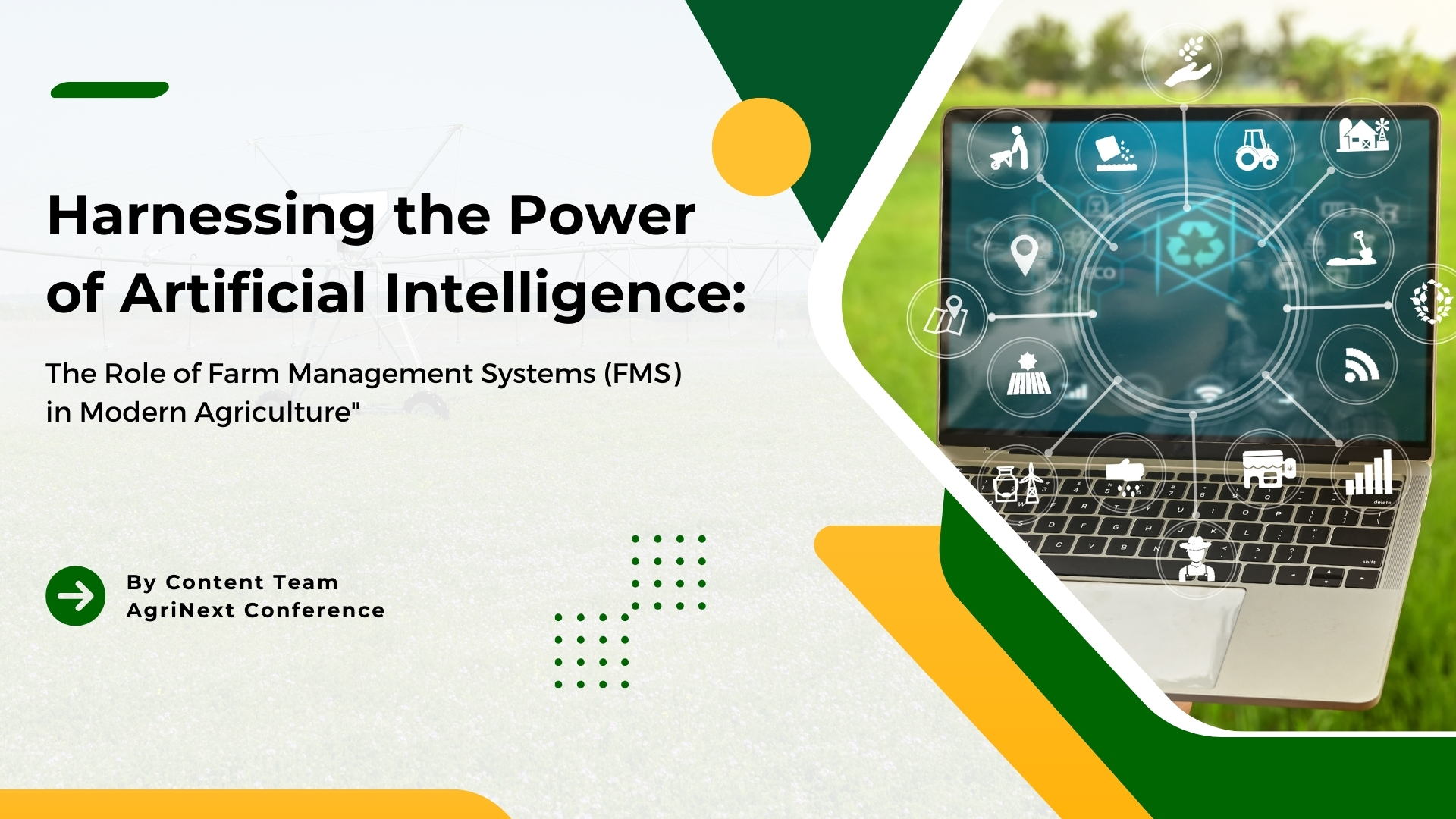
Introduction:
In today’s fast-paced agricultural landscape, farmers face a myriad of challenges, from climate variability to market unpredictability. In the quest for greater efficiency, productivity, and sustainability, many farmers are turning to innovative solutions, with one standout technology leading the charge: Artificial Intelligence (AI). In this blog, we explore the pivotal role of AI-driven Farm Management Systems (FMS) in revolutionizing modern agriculture.
Table of Contents
Understanding Farm Management Systems
Farm Management Systems (FMS) are integrated software platforms designed to streamline farm operations, optimize resource management, and enhance decision-making. These systems leverage data from various sources, including sensors, satellites, weather stations, and historical records, to provide farmers with actionable insights and recommendations tailored to their specific needs and objectives.

The Power of AI in Farm Management
AI serves as the driving force behind the evolution of Farm Management Systems, empowering farmers with advanced analytics, predictive modeling, and automation capabilities. Here’s how AI enhances the role of FMS in modern agriculture:
Advanced Data Analysis
AI algorithms analyze vast amounts of data collected by FMS, uncovering hidden patterns, correlations, and trends that are beyond human capacity to detect. By extracting valuable insights from complex datasets, AI enables farmers to make more informed decisions about crop management, resource allocation, and risk mitigation.
Predictive Analytics
AI-powered FMS utilize predictive modeling techniques to forecast future outcomes based on historical data and current conditions. Whether it’s predicting crop yields, pest outbreaks, or market trends, AI enables farmers to anticipate challenges and opportunities, enabling proactive decision-making and strategic planning.
Precision Agriculture
AI facilitates precision agriculture practices by optimizing resource allocation and tailoring management strategies to specific field conditions. Through techniques such as variable rate application and automated irrigation scheduling, AI-driven FMS maximize resource efficiency, minimize waste, and improve crop yields while reducing environmental impact.
Decision Support
AI-powered decision support systems within FMS provide farmers with personalized recommendations and actionable insights. By analyzing data in real-time and considering factors such as weather forecasts, soil conditions, and market trends, AI enables farmers to make optimal decisions about crop selection, planting schedules, pest management, and financial planning.
Automation
AI-driven automation streamlines farm operations by automating routine tasks and processes. From adjusting irrigation systems to activating pest monitoring devices, AI-enabled FMS reduce the burden on farmers, save time and labour, and ensure timely and precise interventions for optimal farm performance.
Japan has a long history of agriculture and is known for its advanced technology and innovative farming practices. In recent years, Japanese farmers have been increasingly adopting smart farming techniques, including the use of farm management systems (FMS) powered by AI and IoT (Internet of Things) technology. One notable example is the “Ichigo Ichie Farm” located in Aichi Prefecture, Japan. This farm specializes in the cultivation of strawberries, a highly prized crop in Japan.
The farm utilizes a comprehensive farm management system called “AgriCloud” developed by a Japanese agricultural technology company. AgriCloud integrates various IoT devices, sensors, and AI algorithms to monitor and manage all aspects of the farm operation. Here’s how it works:

Climate and Environment Monitoring:
Lot sensors installed throughout the greenhouse measure environmental parameters such as temperature, humidity, light intensity, and carbon dioxide levels in real-time. AI algorithms analyze this data to optimize the greenhouse climate for strawberry growth and productivity.
Water and Nutrient Management:
Automated irrigation systems equipped with sensors and controllers ensure precise water delivery to the strawberry plants based on their growth stage and moisture levels in the soil. Fertilizer injectors are also integrated into the system to provide nutrients in the optimal amounts.
Disease Monitoring:
AI-powered image recognition technology is used to monitor the plants for signs of pest infestation or disease. High-resolution cameras capture images of the plants, and AI algorithms analyze them to detect abnormalities and alert farmers to take appropriate action.
Harvesting and Quality Control:
Lot devices are used to track the growth and ripening of the strawberries. Once ripe, robotic arms equipped with AI vision systems autonomously harvest the strawberries with precision and care to avoid damage. Quality control sensors ensure that only the highest-quality berries are selected for sale.
Data Analytics and Decision Support:
AgriCloud collects and analyzes vast amounts of data from all aspects of the farm operation. AI algorithms crunch the numbers to provide farmers with actionable insights and recommendations for optimizing crop yields, reducing resource usage, and improving overall farm performance.
The “Ichigo Ichie Farm” demonstrates how advanced farm management systems powered by AI and IoT technology can revolutionize agriculture in Asia. By leveraging data-driven decision-making and automation, Japanese farmers are able to increase productivity, improve crop quality, and achieve greater sustainability in their farming practices. This example serves as an inspiration for farmers across Asia to embrace smart farming solutions for a more prosperous and sustainable future.
Conclusion:
In conclusion, AI-driven Farm Management Systems represent a game-changer in modern agriculture, empowering farmers with the tools and insights they need to thrive in a rapidly evolving environment. By harnessing the power of AI, FMS enables farmers to optimize productivity, enhance sustainability, and mitigate risks, ultimately driving greater efficiency and profitability across the agricultural value chain. As AI technology continues to advance and FMS evolve, the future of agriculture looks brighter than ever, with endless possibilities for innovation and growth.
